Local elections: Councils' social care issues worsen
- Published

You might not think the local elections have anything to do with your health - but beyond schools and waste collection, looking after some of our most vulnerable people is an issue that newly-elected councillors will have to quickly get to grips with.
Local authorities have a vital role - and legal obligation - in providing social care, as well as other social services.
But they face challenges in the years ahead:
The number of older people - aged 65 and over - needing residential care is set to rise by 82% over the next 20 years in Wales
Those who will need community-based services is projected to rise by 67%
By the mid 2020s, 21.5% of Wales' population will be over 65 and that will rise by the mid-2030s to 25%
The Health Foundation, external last year estimated pressures on social care in Wales would rise by about 4.1% a year over the next 15 years due to population changes, the nature of complex and chronic conditions and rising costs.
This will require the budget to almost double to £2.3bn to match demand which has big implications for councils already dealing with tighter budgets.
An independent research programme, Wales Public Services 2025, led by Cardiff Business School but involving councils, health boards and other organisations, is looking at long term challenges.
Its latest report, external estimates that on current population projections, local councils need to be spending at least an additional £134m by 2020-21.
This would bring the spending per capita on social services for the over 65s back to levels of seven years ago. This is an equivalent to a year-on-year growth rate of 2.5%.
"Projections suggest that there will have to be a near doubling of spending on local authority social services for older people by 2030," said the report.
Michael Trickey, Wales Public Services 2025 programme director, estimates that under-pressure local councils have already cut back on spending on neighbourhood services by a third - £40m - in areas including sport, leisure, libraries, open spaces and parks.
He believes a "long term" approach is needed by UK and devolved governments to address the social care conundrum.
"A lot of the work into the policies and the options available has already been done but government has not wanted to deal with perhaps some of the difficult decisions needed," he said.
"But it has come back again and now it has to really get a grip or we'll be back into crisis again in a couple of years' time."
But what about the private sector? There are struggles here too - with some residential and home care providers failing.
Last month, the UK Homecare Association reported a "real sense of desperation".
BBC Wales found 13 of Wales' 22 councils had seen contracts handed back to them. The proportion with returned contracts - 59% - compares to a UK average of 48%.
The Welsh Local Government Association (WLGA) has welcomed relative protection for social care spending by Welsh Government in recent years - including an extra £20m following the Chancellor's Budget - but is worried it will not keep pace.
Chief executive Steve Thomas said: "For new councillors, in terms of the challenges ahead - the pressures on social care budgets will be the biggest headache you face.
"It's not just about the care of elderly people either, there are also the demands of caring for our looked after children.
"Most people don't use these services; if you've a council with a 175,000 population, it might be only 5,000 using those services - but social care is expensive."
He welcomed the prime minister's intervention in the issue , externaland said it was a time to consider other solutions - whether social care insurance or taxation - so the burden did not fall on local councils or Welsh Government.
"The danger is if this is not addressed over the next 10 or 15 years, local authorities could be left just as social care agencies."

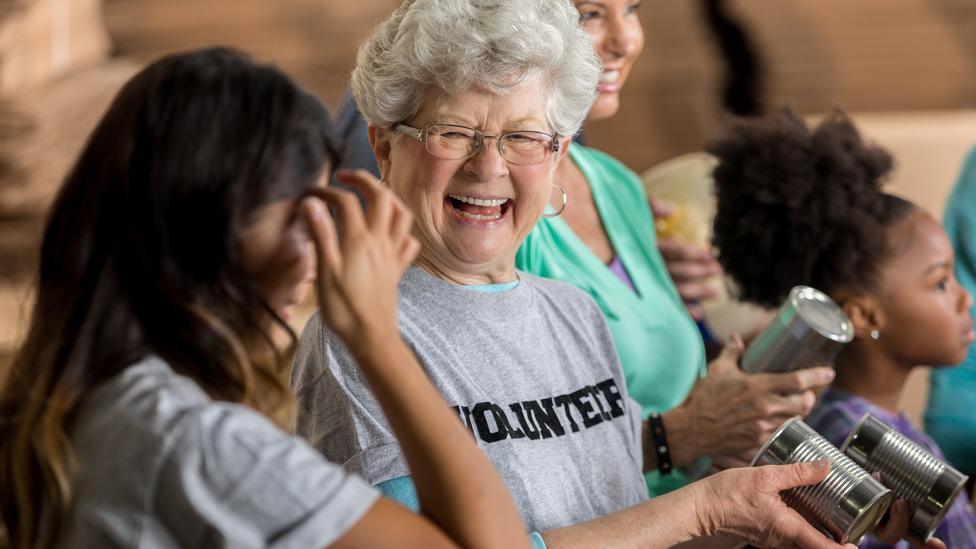
Analysis by Owain Clarke, BBC Wales health correspondent
An ageing population is often talked about in terms of being an extra burden on services but could there also be opportunities?
Far more people aged over 65 now work full-time.
Also, the charity King's Fund estimates older people also contribute financially through a variety of other routes, external - from their spending power to volunteering.
So one way of mitigating the challenges of an ageing population is to help individuals contribute to society as long as they can - put another way - to live healthily for longer.
It is argued the services councils provide are essential to that.
Housing, leisure centres and libraries have arguably a much greater role to play than the NHS and social services in keeping us healthy in the first place.
So, even if health and social care spending goes up or is protected to meet the needs of an ageing population, councils are worried other "preventative services" will continue to bear the brunt of cuts. And this could mean bigger problems down the line.
- Published20 March 2017
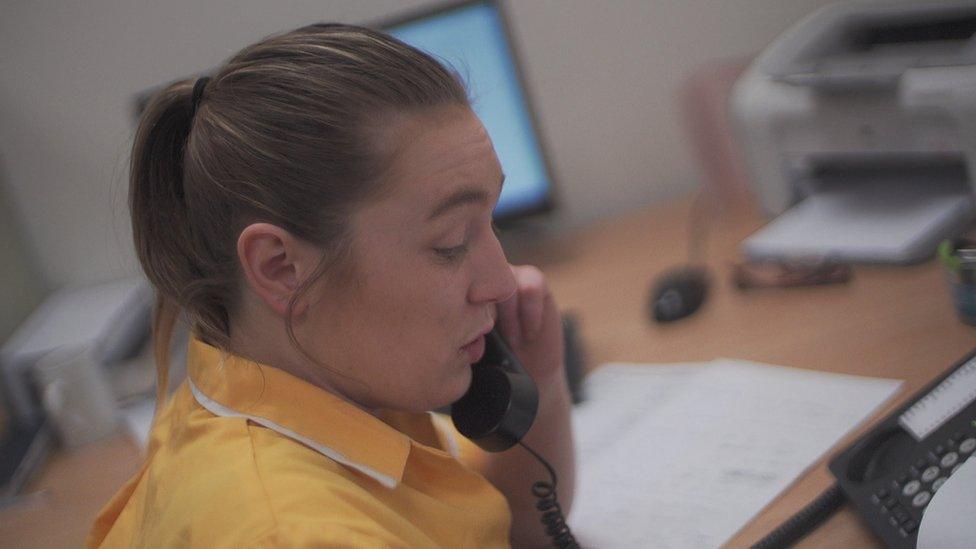
- Published26 April 2017
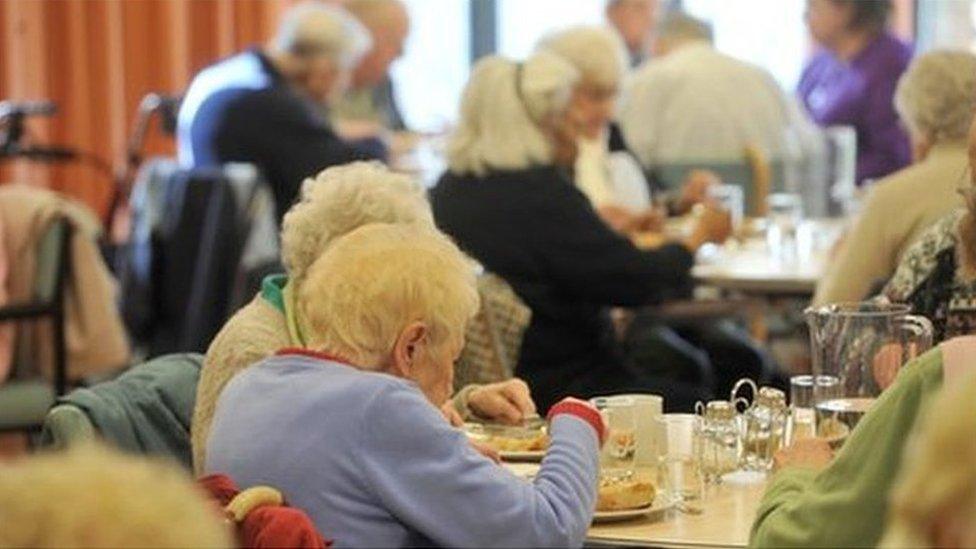
- Published6 January 2017
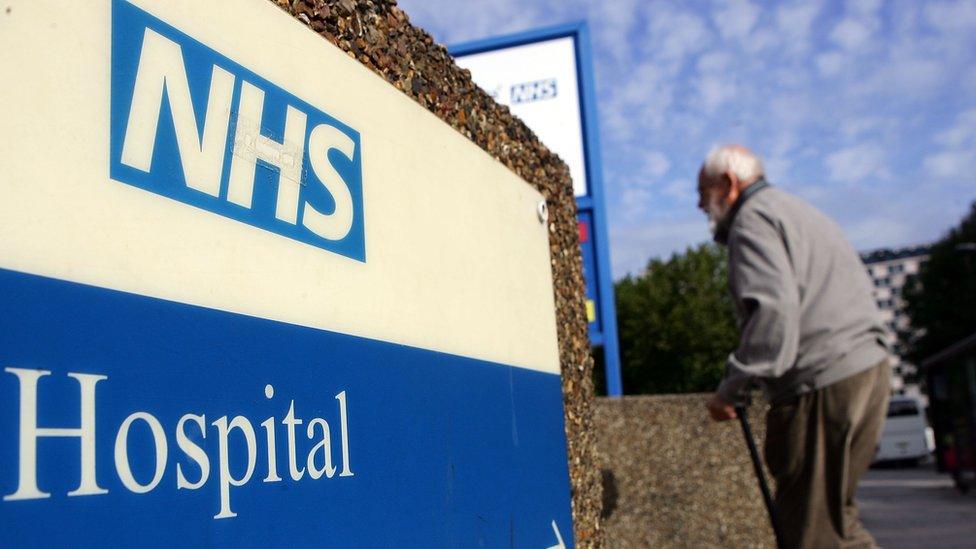
- Published2 November 2016
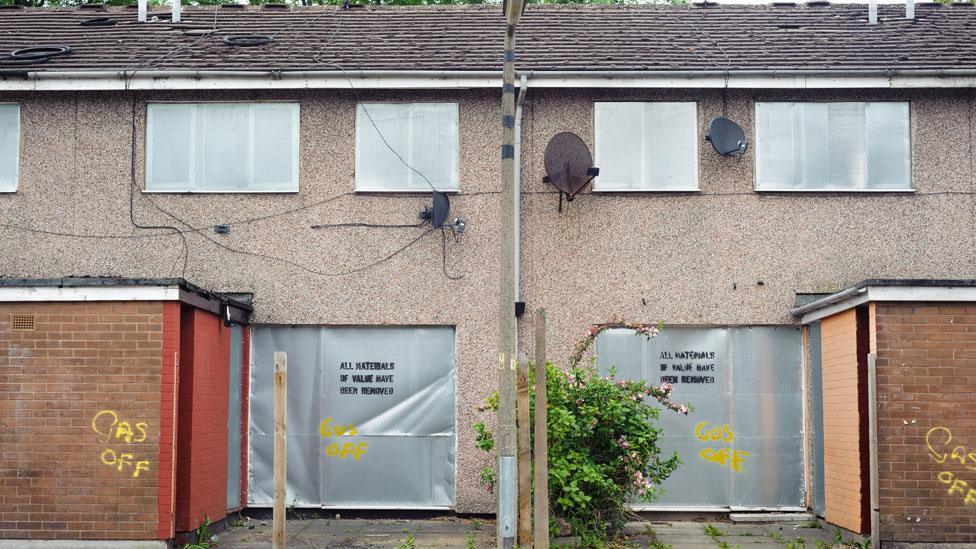
- Published2 November 2016

- Published13 October 2016

- Published10 March 2014

- Published4 July 2011